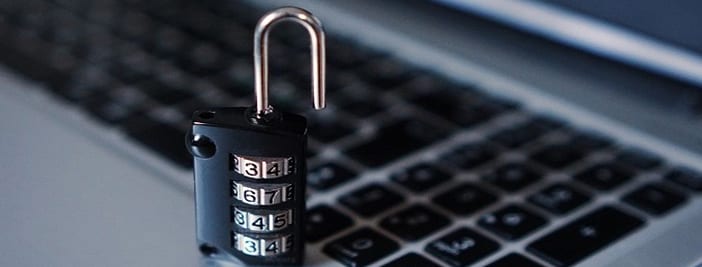[av_image src=’ https://www.infinityinc.us/wp-content/uploads/Tyler-Richards-sq.jpg attachment=’6710′ attachment_size=’square’ align=’left’ styling=’circle’ hover=” link=” target=” caption=’yes’ font_size=’10’ appearance=’on-hover’ overlay_opacity=’0.6′ overlay_color=’#000000′ overlay_text_color=’#ffffff’ animation=’no-animation’ custom_class=” admin_preview_bg=” av_uid=’av-34x7rj’]
Tyler,
TAC Admin
[/av_image]
With the arrival of COVID-19, many of us had our daily lives shifted from commuting to work to taking a trip to the nearest table in our own homes. Thankfully many of us can work from home whether it be on a work computer or a personal device. What’s most critical to keep in mind, no matter what machine is used, is that you are connecting to the company’s network from home. And your home network is almost certainly not as secure as your work network. So you need to be extra cautious. This means keeping your computer updates current, making sure you do not download anything that can be harmful, and having a current and up-to-date antivirus.
“I’m always careful about browsing. I don’t click on strange links, and I only make purchases on verified secure websites. What good is antivirus software going to do?”
What Does Antivirus Do?
A current antivirus program is a basic level of protection. Traditional antivirus scans the files on your computer and looks for known threats. As the threats have evolved, however, so have the countermeasures. Antivirus programs nowadays can look for trojans, malware, ransomware, and more. The best programs use machine learning and behavior tracking to identify attacks that have not yet been logged in virus databases and to prevent damage.
Examples of Threats Antivirus Can Detect
Antivirus can detect malicious software such as a key logger or a crypto attack. A key logger is software that tracks what is typed—the keys you press—and searches for patterns that can be a username and password. Once this information is obtained, hackers can either sell it on the Dark Web for money or use it and log in as you to wreak havoc on the company’s network, access bank accounts, etc.
An example of a crypto attack is a worm that spreads over the drives storing all the company’s data and encrypts them. This makes it impossible to access or use the data without having the key for the decryption. Hackers would then hold the data for ransom to get money and may or may not release it when they get paid. Sometimes hackers even wait for months until a typical company’s backups are out of date before asking for the ransom.
These attacks can occur easily on personal computers without business-level protection. And once on the personal computer, viruses can travel quickly throughout a company network without you even noticing. We typically recommend connecting to business networks through a VPN to heighten security, but if the computer you use to do that already has viruses on it, then the type of connection doesn’t really matter. Once connected, the viruses are free to access whatever that user has access too. Having a good antivirus on your personal computer can help mitigate the risk of this happening.
Types of Antivirus
So now that you’re convinced, which antivirus should you use?
There are many different programs that can help prevent these attacks on your personal computer. Webroot, Norton Antivirus, and McAfee are a few of the popular ones. Does it matter if you only get a free version? Well, like all things, you get what you pay for. So if you go with a free version, it’s going to be very basic protection – most likely a simple file scan against known viruses. But even free is better than none. Be sure to get the software from a reputable company, and start there. You can always upgrade later.
On the more robust professional side, many of our colleagues use ESET or Sentinel to protect clients. The purpose of these programs is to constantly monitor the computers and see if anything seems suspicious or malicious. If something like that is detected, the program will alert the user and stop what was detected from running or doing anything. Some of the alerts can be false alarms, but it is never a bad thing to be cautious when it comes to potentially dangerous software that can harm both your personal life and your business.
That is why the answer is Yes, you do need antivirus software.
